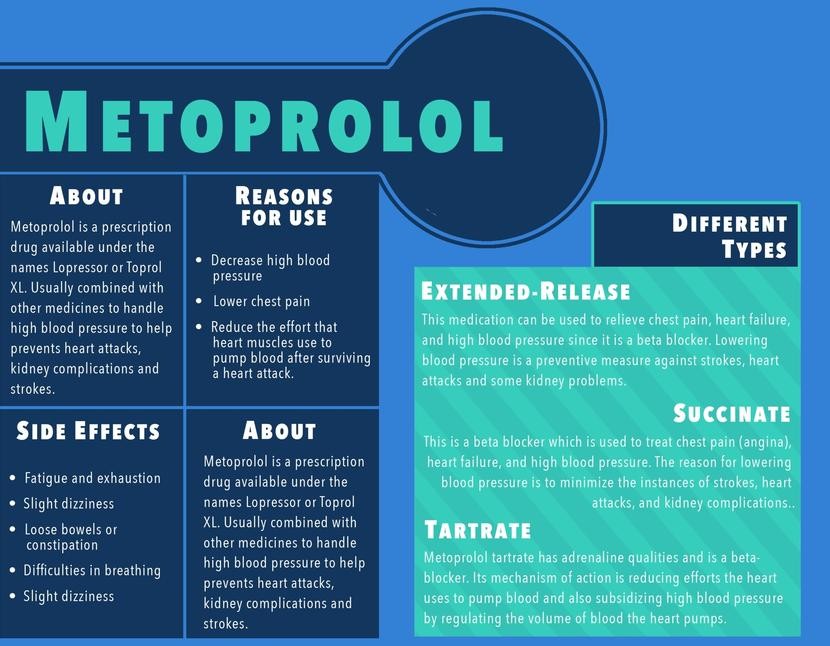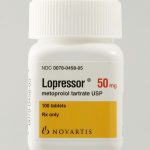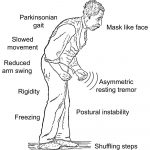
METOPROLOL EXTENDED RELEASE-ORAL
Warning
Medication Uses
Other Uses
How To Use
Side Effects
Precautions
Drug Interactions
Overdose
Notes
Missed Dose
Storage
Medical Alert
WARNING: If you have chest pain (angina) or heart disease (e.g., coronary artery disease, ischemic heart disease, high blood pressure), do not stop using this drug without consulting your doctor. Your condition may become worse when the drug is suddenly stopped. If your doctor decides you should no longer use this drug, you must gradually decrease your dose according to your doctor’s instructions. When gradually stopping this medication, it is recommended that you temporarily limit physical activity to decrease strain on the heart. Seek immediate medical attention if you develop: worsening chest pain, tightness or pressure in the chest, chest pain spreading to the jaw/neck/arm, sweating, trouble breathing or fast/irregular heartbeat.
USES: This medication is a beta-blocker used to treat chest pain (angina), heart failure, and high blood pressure. Lowering high blood pressure helps prevent strokes, heart attacks, and kidney problems. This drug works by blocking the action of certain natural chemicals in your body (such as epinephrine) that affect the heart and blood vessels. This results in a lowering of heart rate, blood pressure, and strain on the heart.
OTHER USES: This medication may also be used for irregular heartbeats, migraine headache prevention, and after an acute heart attack to improve survival.
HOW TO USE: Take this medication by mouth usually once daily in the morning, with or without food, or as directed by your doctor. Use this medication regularly in order to get the most benefit from it. Remember to use it at the same time each day. Swallow this medication whole. Do not crush, chew, or break the tablet before swallowing. This drug is not effective if you use it only when chest pain or a migraine headache occurs. It is very important to take this medication regularly as prescribed to help prevent these conditions. The dosage is based on your medical condition and response to therapy. It may take one or two weeks before the full benefit of this drug takes effect. It is important to continue taking this medication even if you feel well. Most people with high blood pressure do not feel sick. Do not suddenly stop taking this medication without consulting your doctor. Your condition may become worse when the drug is suddenly stopped. Refer to the Warning section.
SIDE EFFECTS: You may experience dizziness, lightheadedness, drowsiness, tiredness, diarrhea, unusual dreams, trouble sleeping, or vision problems as your body adjusts to the medication. If any of these effects persist or worsen, notify your doctor or pharmacist promptly. This drug may reduce blood flow to your hands and feet, causing them to feel cold. Smoking may worsen this effect. Dress warmly and avoid tobacco use. With some brands of this medication, an empty tablet shell may appear in your stool. This is harmless. Tell your doctor immediately if any of these unlikely but serious side effects occur: symptoms of a very slow heartbeat (e.g., persistent dizziness, fainting, unusual fatigue), bluish discoloration of the fingers and toes, numbness/tingling/swelling of the hands or feet, decreased sexual ability, reversible hair loss, mental/mood changes, trouble breathing, cough, unexplained or sudden weight gain, increased thirst, increased urination. Tell your doctor immediately if any of these highly unlikely but very serious side effects occur: easy bruising or bleeding, persistent sore throat or fever, yellowing skin or eyes, stomach pain, dark urine, persistent nausea. In the unlikely event you have a serious allergic reaction to this drug, seek medical attention immediately. Symptoms of a serious allergic reaction include: rash, itching, swelling, severe dizziness, trouble breathing. If you notice other effects not listed above, contact your doctor or pharmacist.
PRECAUTIONS: Before taking metoprolol, tell your doctor or pharmacist if you are allergic to it; or if you have any other allergies. This medication should not be used if you have certain medical conditions. Before using this medicine, consult your doctor or pharmacist if you have: certain types of irregular heartbeats (e.g., sinus bradycardia, second or third degree atrioventricular block), cardiogenic shock, severe heart failure (overt or decompensated type), a certain type of tumor (untreated pheochromocytoma). Before using this medication, tell your doctor or pharmacist your medical history, especially of: heart failure (treated, compensated type), breathing problems (e.g., asthma, chronic obstructive lung disease), diabetes, overactive thyroid disease (hyperthyroidism), liver disease, blood circulation problems (e.g., Raynaud’s disease), skin conditions (e.g., psoriasis), mental/mood disorders (e.g., depression), certain muscle disease (myasthenia gravis). Before having surgery, tell your doctor or dentist that you are taking this medication. If you have diabetes, this medication may mask the fast/pounding heartbeat you would usually feel when your blood sugar level falls too low (hypoglycemia). Other symptoms of a low blood sugar level such as dizziness or sweating are unaffected by this drug. This drug may make you dizzy or drowsy; use caution engaging in activities requiring alertness such as driving or using machinery. Limit alcoholic beverages. To minimize dizziness and lightheadedness, get up slowly when rising from a seated or lying position. This medication should be used only when clearly needed during pregnancy. Discuss the risks (e.g., low birth weight) and benefits with your doctor. This drug passes into breast milk. While there have been no reports of harm to nursing infants, consult your doctor before breast-feeding.
QUESTION
DRUG INTERACTIONS: This drug should not be used with the following medications because very serious interactions may occur: mibefradil, psychiatric drugs (phenothiazines such as chlorpromazine, thioridazine). If you are currently using any of these medications, tell your doctor or pharmacist before starting this drug. Before using this medication, tell your doctor or pharmacist of all prescription and nonprescription products you may use, especially of: alpha-blockers (e.g., prazosin), anti-diabetic drugs (e.g., glipizide, glyburide, insulin), barbiturates (e.g., phenobarbital), calcium channel blockers (e.g., diltiazem, verapamil), cimetidine, epinephrine, general anesthesia, non-steroidal anti-inflammatory drugs (e.g., indomethacin, ibuprofen), other heart drugs (e.g., amiodarone, digoxin, propafenone, quinidine, intravenous lidocaine), other drugs to treat high blood pressure (e.g., clonidine, hydralazine, reserpine), medications for overactive thyroid disease (e.g., methimazole, propylthiouracil), paroxetine, rifamycins (e.g., rifampin), St. John’s wort. Check the labels on all your medicines (e.g., cough-and-cold products, diet aids) because they may contain ingredients that could increase your heart rate or blood pressure. Ask your pharmacist about the safe use of those products. Do not start or stop any medicine without doctor or pharmacist approval.
OVERDOSE: If overdose is suspected, contact your local poison control center or emergency room immediately. US residents can call the US national poison hotline at 1-800-222-1222. Canadian residents should call their local poison control center directly. Symptoms of overdose may include unusually slow heartbeat, severe dizziness, slow or shallow breathing, weakness, or fainting.
NOTES: Do not share this medication with others. Lifestyle changes such as stress reduction programs, exercise and dietary changes may increase the effectiveness of this medicine. Talk to your doctor or pharmacist about lifestyle changes that might benefit you. Have your blood pressure and pulse checked regularly while taking this medication. It may be best to learn how to monitor your own blood pressure and pulse. Discuss this with your doctor.
MISSED DOSE: If you miss a dose, use it as soon as you remember. If it is near the time of the next dose, skip the missed dose and resume your usual dosing schedule. Do not double the dose to catch up.
STORAGE: Store at room temperature away from light and moisture. Do not store in the bathroom. Keep all medicines away from children and pets.
MEDICAL ALERT: Your condition can cause complications in a medical emergency. For enrollment information call MedicAlert at 1-800-854-1166 (USA), or 1-800-668-1507 (Canada).
Report Problems to the Food and Drug Administration
You are encouraged to report negative side effects of prescription drugs to the FDA. Visit the FDA MedWatch website or call 1-800-FDA-1088.
Selected from data included with permission and copyrighted by First Databank, Inc. This copyrighted material has been downloaded from a licensed data provider and is not for distribution, except as may be authorized by the applicable terms of use.
CONDITIONS OF USE: The information in this database is intended to supplement, not substitute for, the expertise and judgment of healthcare professionals. The information is not intended to cover all possible uses, directions, precautions, drug interactions or adverse effects, nor should it be construed to indicate that use of particular drug is safe, appropriate or effective for you or anyone else. A healthcare professional should be consulted before taking any drug, changing any diet or commencing or discontinuing any course of treatment.


